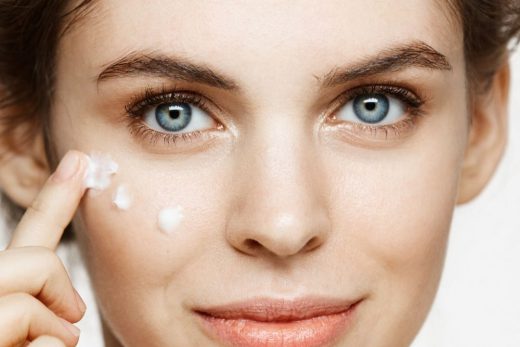Oatmeal
Benefits: Anti-inflammatory, eczema relief. “Oatmeal contains anti-inflammatory and anti-irritant chemicals called avenanthramides,” Wong says. “It also has moisturizing beta glucans and starches. It’s the reason why oatmeal baths are so effective for conditions like eczema and rashes.” But not all oatmeal is created equal, Geraghty says. “Colloidal oatmeal is powder that’s derived from grinding and preparing oats into very tiny, specific sizes,” she says. This size and quality of oats is what makes the ingredient so therapeutic and able to blend with water to form the soothing paste when mixed with water.
“I like colloidal oatmeal products because they’re gentle and safe, and studies show they don’t tend to cause allergies or irritation,” Geraghty says. “I’ve found that if my eczema patients develop gentle skin care habits and regularly slather on a thick moisturizer containing colloidal oatmeal, they don’t need topical steroids as much or as often.”
Shea Butter
Benefits: Anti-inflammatory, itch relief. Derived from the nut of a shea tree, shea butter is an ingredient in many moisturizers. “It seems to hydrate skin effectively because it’s loaded with fatty acids,” Geraghty says. These nutrients have a calming and anti-inflammatory effect on the skin. She says shea butter might be most useful for treating and soothing eczema. Clinical studies using shea butter as a treatment for eczema in children showed less itching within 4 weeks, and another study with adults showed improvement in 2 weeks. Geraghty points out another plus of the natural moisturizer: Shea butter doesn’t seem to cause skin allergies often, which makes it right even for the most sensitive skin types.
Soy
Benefits: Inhibits pigmentation, improves collagen production. Soybeans contain a variety of plant-based chemicals that impact the skin. Among them are antioxidants, fatty acids, and isoflavones. The legume also produces estrogens or phytoestrogens that address skin conditions related to menopause.
“One of the reasons we believe that a woman’s skin turgor and brightness decreases after menopause is because of decreased estrogen,” Sarkar says. “Topical estrogens have been shown to help decrease UV-induced pigmentation and can improve collagen synthesis.” She says soy won’t offer as robust results as retinoids, but it’s another option for patients looking to address these conditions. The isoflavones in soy also offer sun protection that can help address pigmentation to keep skin even, according to research.





